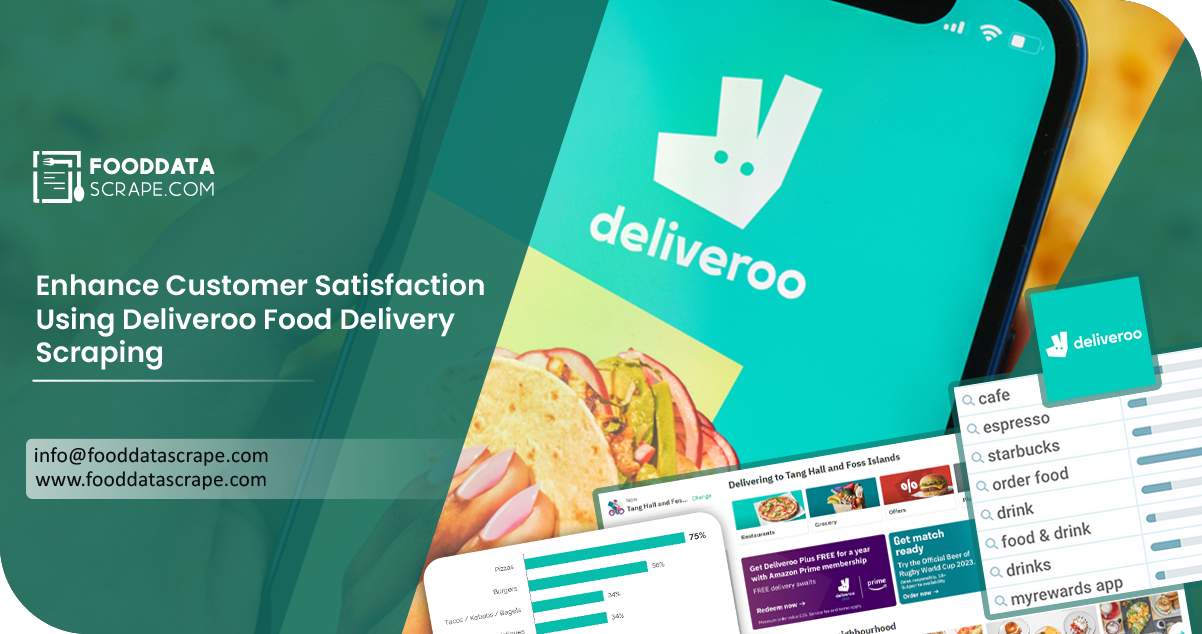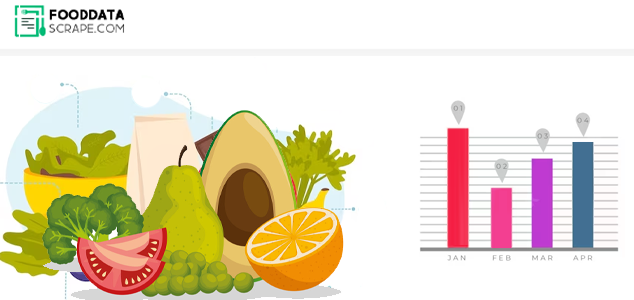The Client
Our client operates a prominent food delivery business and aims to enhance customer satisfaction by improving its service offerings. To achieve this goal, they leveraged our food delivery data scraping services. It allowed them to access valuable insights to optimize menu choices, delivery routes, and overall operational efficiency, resulting in a more satisfying customer experience and increased business success.
Key Challenges
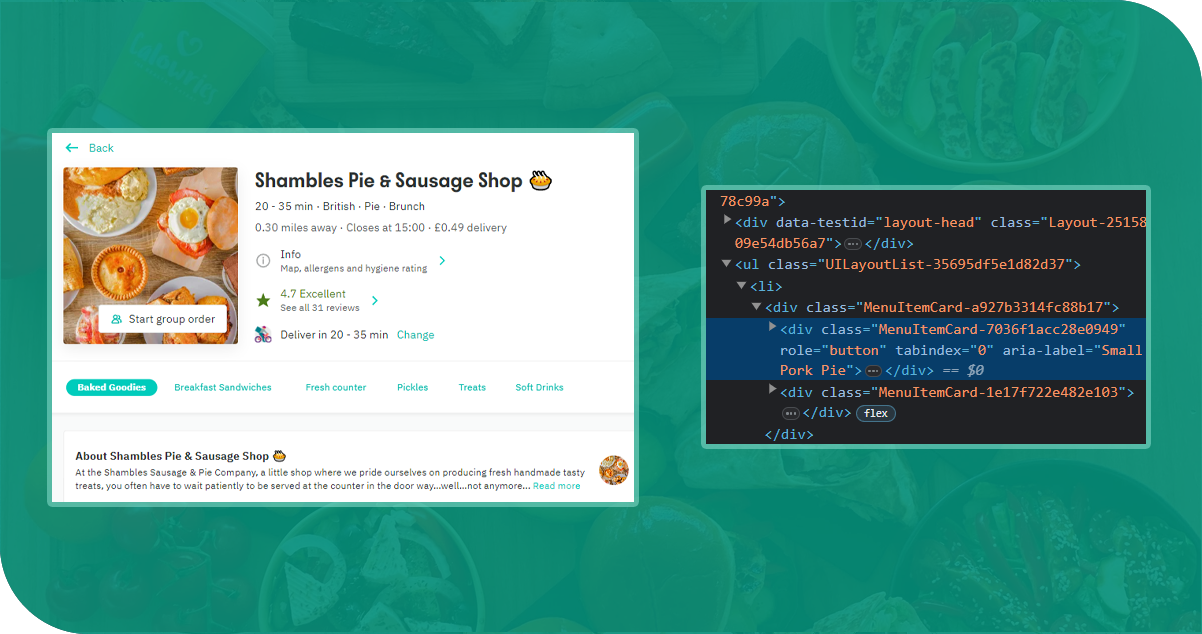
- Deliveroo periodically updates its website structure, making maintaining a stable scraping process challenging. We had to adapt our scraping code to accommodate these changes continually.
- Deliveroo employs anti-scraping techniques to deter automated data collection, including CAPTCHA challenges and IP blocking. Overcoming these measures required additional tools and strategies.
- Much of the data on Deliveroo's platform loads dynamically, which meant we had to implement techniques like AJAX requests and Selenium automation to retrieve complete and up-to-date information.
- Deliveroo hosts vast data, including menus, reviews, and restaurant information. Managing and storing this large volume of data efficiently posed a storage and processing challenge.
Key Solutions
- Regular Monitoring and Maintenance: We established a routine for monitoring the website's structure and behavior. On detecting the changes, we promptly updated our scraping scripts to accommodate these modifications.
- Anti-Blocking Strategies: To tackle anti-scraping measures, we rotated IP addresses using proxy services and employed user-agent rotation to mimic human browsing behavior. Additionally, we implemented CAPTCHA-solving mechanisms when necessary.
- Dynamic Content Handling: We utilized Deliveroo scraper like Selenium to interact with and scrape data from pages with dynamic content loading. It ensured that we collected complete and up-to-date information.
- Data Segmentation: We segmented our process to scrape Deliveroo food delivery data to avoid overloading the server and minimize disruptions. We prioritized critical data and implemented efficient data storage techniques.
- Rate Limiting and Throttling: To avoid overloading the website and causing disruptions, we implemented rate limiting and throttling mechanisms in our scraping scripts. It helped maintain a respectful and efficient scraping process.
- Error Handling: Robust error-handling mechanisms were put in place to handle unexpected issues gracefully, such as connection failures or unexpected changes in page structure.
Methodologies Used
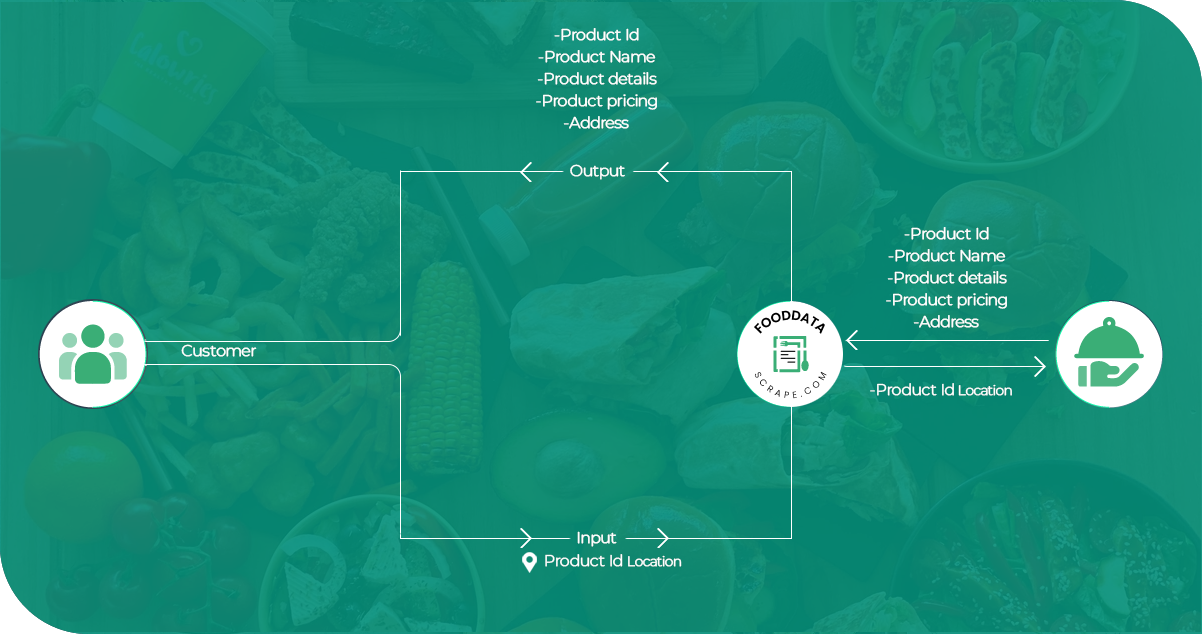
Web Scraping Libraries: Our restaurant data scraping services employed popular web scraping libraries in Python, such as BeautifulSoup and Scrapy, to parse and extract data from Deliveroo's web pages. These libraries facilitated the extraction of structured information.
Selenium Automation: For web pages with dynamic content or interactions, we utilized Selenium, an automation tool, to navigate the site, simulate user interactions, and scrape data effectively.
Proxy Services: We integrated proxy services into our scraping process to address IP blocking and anti-scraping measures. It allowed us to rotate IP addresses and avoid detection.
User-Agent Rotation: We regularly changed the user-agent string sent with our HTTP requests to mimic diverse user behaviors and reduce the likelihood of being identified as a scraper.
Data Parsing and Cleaning: We developed custom scripts to parse and clean the scraped data, ensuring it was structured and ready for analysis or storage.
CAPTCHA Solving: When confronted with CAPTCHA challenges, we implemented CAPTCHA-solving mechanisms to automate the resolution process, reducing manual intervention.
Rate Limiting and Throttling: We implemented rate limiting and throttling mechanisms to prevent overloading the website and maintain a respectful scraping process in our scraping scripts.
Data Storage: We efficiently stored the scraped data in a structured format, often using databases like MySQL or MongoDB, ensuring easy retrieval and analysis.
Continuous Monitoring: We established a monitoring system to keep track of the scraping process and promptly address any issues, such as errors or disruptions.
Advantages of Collecting Data Using Food Data Scrape
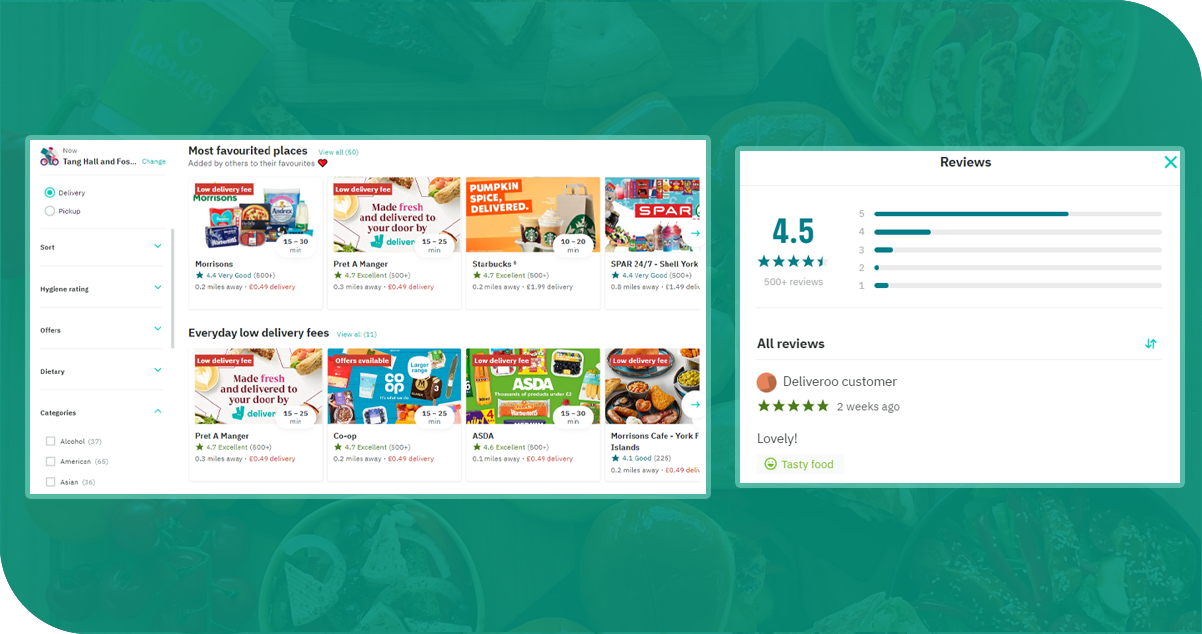
Precision and Accuracy: Our data extraction methods ensure the highest level of accuracy, reducing errors and inconsistencies in the collected data. This precision forms a solid foundation for confident decision-making.
Real-Time Updates: Leveraging automated scraping processes, we offer timely data updates. Whether you require real-time information or scheduled updates, you'll always stay well-informed with the latest data relevant to your operations.
Cost Savings: By automating data collection, our services significantly cut labor costs and reduce resource expenditures associated with manual data gathering. This cost-efficiency is especially valuable for businesses aiming to optimize their operations.
Scalability: Our scraping solutions are adaptable to your changing needs. Whether you have small or large-scale data requirements, we can scale our services to accommodate your evolving demands effortlessly.
Tailored Solutions: We understand that every client has unique data needs. Our highly customizable services allow us to tailor our scraping methods to match your specific requirements, ensuring you receive the most pertinent and valuable data.
Structured Data: We don't just collect data; we structure it in an easily digestible format for analysis and decision-making. This structured data empowers you to derive meaningful insights quickly.
Compliance and Legitimacy: We operate within strict ethical and legal boundaries. Our adherence to website terms of service and regulations ensures that the data we collect is legitimate and obtained responsibly.
Reliability and Continuity: Our robust monitoring systems and error-handling mechanisms guarantee a reliable and uninterrupted data scraping process. This reliability is essential for seamless integration into your business processes.
Final Outcome: We successfully scraped the desired data from Deliveroo and delivered it to our client. Our client used the data to gain insights into market trends, customer preferences, and restaurant performance. With this data, they could make data-driven decisions, optimize their menu offerings, enhance delivery efficiency, and improve overall customer satisfaction. Our timely and accurate information was pivotal in empowering our clients to stay competitive and thrive in the food delivery industry.






















































































